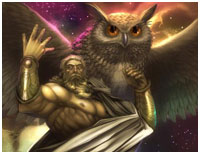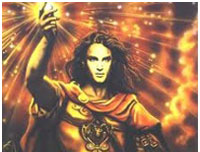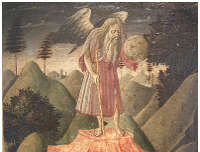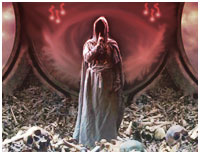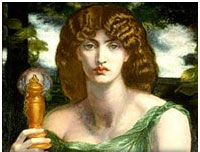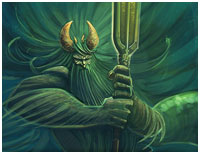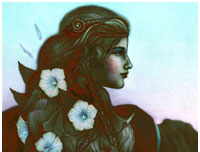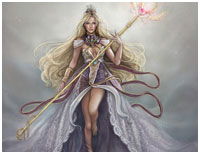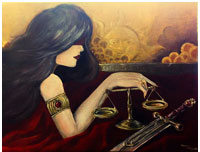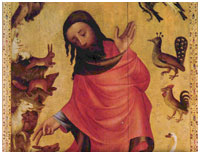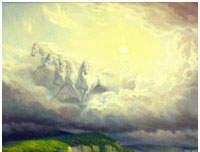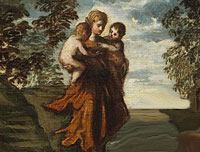The Titans, elder Greek gods and first divine rulers
The mighty Titans were a powerful race that ruled the world before Olympians, in a time of the Golden Age of men. They were immortal giants of incredible strength and knowledge of old religion rituals and magic. They are also known as the Elder Gods and their dwelling place was at Mount Othrys. In Greek culture they were interpreted as personifications of the earth (Gaea) and the sky or heavens (Uranus).
The first generation of Titans were descendants of Gaea and Uranus who originally gave birth to Twelve Titans, six males and six females. Males were Coeus, Cronus, Crius, Hyperion, Iapetus and Oceanus and females were Mnemosyne, Phoebe, Rhea, Theia, Themis and Tethys. They arose to power when Cronus, in a plot with his mother and his brothers, castrated his father Uranus and took the rulership of Cosmos from him. More details about this conflict can be found in the Genesis
During this reign, the titans and other primeval gods decided to pass on the godly genes and gave birth to the second generation of Titans. Hyperion and Theia gave birth to Eos, Helios and Selene, while Coeus and Phoebe brought forth Leto and Asteria. Oceanus and Tethys gave birth to Oceanids and Potamoi who are in general not referred as Titans. However, an Oceanid Clymene, a daughter of Oceanus and Tethys, helped Iapetus to continue the next generation and bore him Atlas, Prometheus, Epimetheus and Menoetius. Crius and his half-sister Eurybia, a daughter of Gaea and Pontus, brought forth Astraeus, Pallas and Perses and, eventually, Cronus and Rhea gave birth to younger gods, Zeus, Hades, Poseidon, Hera, Hestia and Demeter who rebelled against Cronus and his followers and later defeated them in a ten-year war, known as Titanomachy. They called themselves the Olympian Gods, after Mount Olympus which was their main dwelling place, and became the new rulers of Cosmos.

